If you’re trying to make the choice for the right headphone and you’re indecisive, there are a number of factors to consider so you don’t wind up disappointed. The first and most important thing to pay attention to is the design – There are 3 design types which serve different purposes: the on-ear, usually in the form of gaming headsets, over-ear, most commonly used in studios or by music enthusiasts and lastly the in-ear which are your typical iPhone-like buds.
In ear are the cheapest ones and usually don’t offer great sound quality, on ear offers decent sound quality but it’s more geared towards communication (multiplayer games, skype, etc) and the over ear is the largest type but offers the absolute best sound quality. On top of that, you’ll have to consider whether you want noise cancelling features or a wireless set that utilizes RF/Bluetooth technology.
Don’t Hear Anything Except Your Music
One of the best features an on-ear headphone can offer you is isolating noise cancellation. It might sound complicated but the way it works is simple to grasp: All it does is quickly analyze the external noise, then make sound waves that are the opposite and this instantly cancels it out. This is why it can effectively block out pretty much all noise to a point where you only hear what’s playing on your phone/iPod. It’s ideal for people who could use a bit of extra focus when they’re jogging, or when they’re on a flight/metro and things tend to get loud. Headphones which actively offer noise cancellation also go lighter on your earlobe because you don’t have to turn up the volume in order to cancel out the external noise.
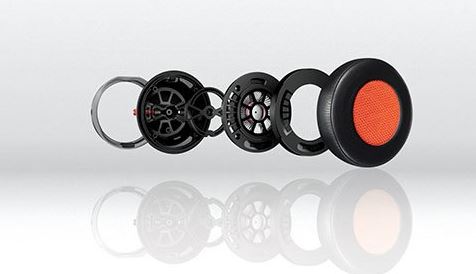
Philips, one of the most renowned headphone manufacturers came up with an extremely portable design which combines these desirable features in their new M1MKIIBO/27 Fidelio M1 MKII Headphones. As you might’ve guessed by the looks of the Fidelio, it delivers a very energetic and present sound with precise quality. It comes in a standard black color but there’s an orange option as well.
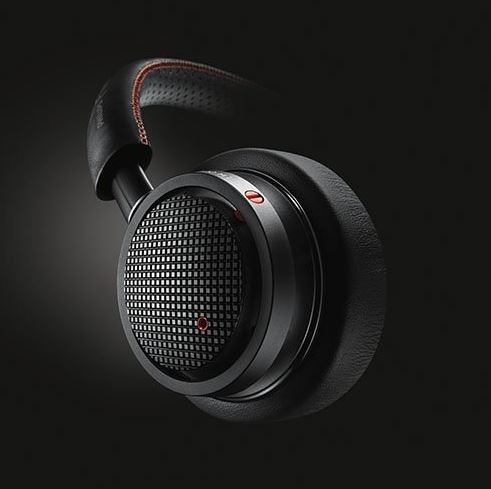
How’s The Bass Reflex System?
Philips obviously went out of their way to deliver a great bass response on the Fidelio: There are carefully placed vents on the ear shells which shape the air pressure in a desirable way internally so in turn you get a near-perfect acoustic response. The type of bass response will spoil you so if you’re forced to use weaker headphones later you’ll wish you could go back. It’s one of a kind and at the same time it doesn’t compromise your overall sound quality.
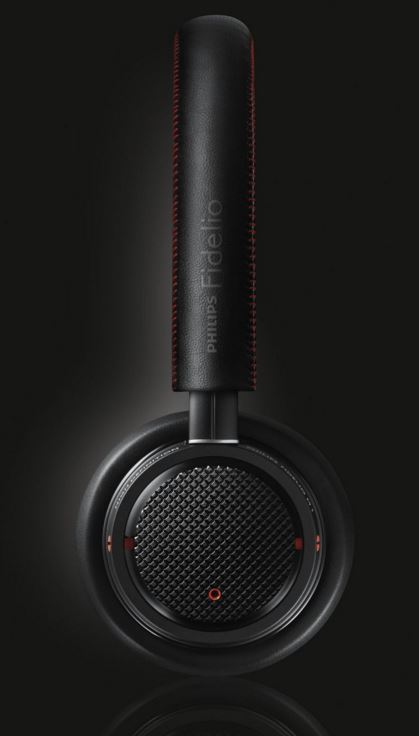
How Does It Feel When You Wear?
When you put it on it feels very high-end/expensive, while the sound doesn’t disappoint as well. The design on the Fidelio certainly feels neutral (in a good way) so it’s likely you’ll spend a lot of time using it. You could use it on a long thinking walk when you just want to be by yourself, a long flight, on the way to school, etc. The sturdy and durable build means you probably won’t hesitate to pack it in your bag when you’re going for a hike – this type of headphone usually has a certain durability to it. It’s also worth pointing out that despite the heavy duty build, it’s also extremely comfortable and you don’t feel like your ears are about to fall off when you wear it for a couple of hours. It sits perfectly even if you’re in fast movement like doing high intensity cardio.
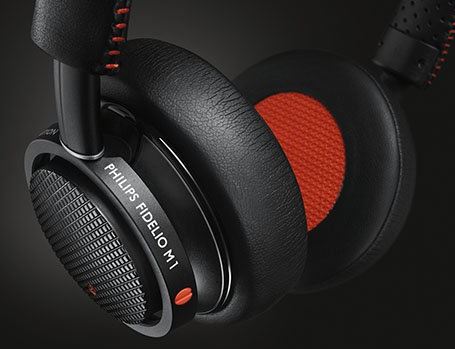
Reasons You Can’t Go Wrong:
- Although it’s a bit more expensive than your average headphone, it’s certainly a cut above all the in-ear and gaming sets people are relying on while looking better than your average studio headphone.
- The drivers are 40mm neodymium and thus you can expect to hear studio-quality sound and not miss out on any details. It’s the best way to experience new music.
- It’s a big sound and the quality unparalleled.
- Isolating noise cancellation means the sound will stay in while you don’t hear any external noise. Also people sitting next to you won’t be annoyed by your songs even if you play them loudly because they can’t hear them as well.
- The BRS (bass-reflex system) produces a very clear and balanced bass.
- It was designed to deliver precise sound and the earshells are double layered.
- Feels very intuitive, if more than one person is going to use they won’t have problems putting it on or taking it off fast.
- The pouch was designed to offer great protection so it adds to the durability.
- Very tight fit on the earlobes so you’re free to move in comfort, even with strong winds blowing your way or if you’re running fast – it just sticks, comfortably.
- Combined fine leather stitching and aluminum make it look very expensive and professional-grade.
Conclusion – Worth It?
It’s very obvious that the Fidelio absolutely delivers on all fronts. The internals have been upgraded from previous models and if you’re serious about your music but you’re not a studio professional, the M1MKIIBO/27 Fidelio M1 MKII Headphones are the only option out there.
Meet Ry, “TechGuru,” a 36-year-old technology enthusiast with a deep passion for tech innovations. With extensive experience, he specializes in gaming hardware and software, and has expertise in gadgets, custom PCs, and audio.
Besides writing about tech and reviewing new products, he enjoys traveling, hiking, and photography. Committed to keeping up with the latest industry trends, he aims to guide readers in making informed tech decisions.

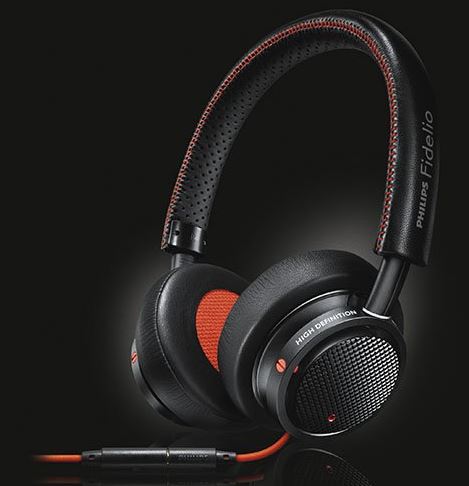
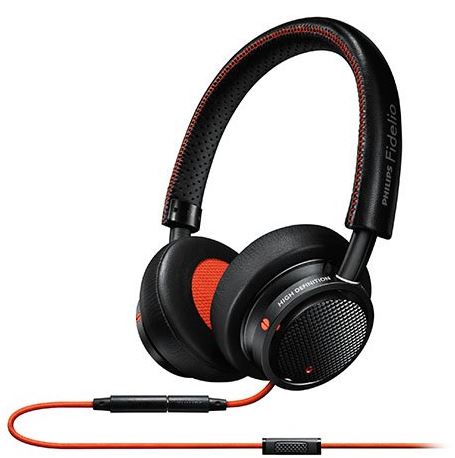
I received one of these through the Amazon Vine review program, so admittedly I only had to pay income tax on approximately a supposed $200 taxable value. Initially I liked the audio greatly, but did find that the microphone is placed too far down the cord to provide adequate volume for anyone at the other end of a cell phone call (which I occasionally tried to use it for while sitting at my computer). Looping the cord once over one side of the headphones brought the microphone up enough that volume was minimally acceptable, but that was about the best I could accomplish. Since that wasn’t my primary use of the headphones, I didn’t worry about it too much.
Then I owned the headphones for almost exactly two years, during which time they received VERY light use (occasional use when I wanted to listen to something on the computer without bothering anyone else in the house) – and that was probably only 4-5 times per week for a few minutes each time. With that very light use, I find it appallingly clear that the quality of materials and workmanship for this product is awful, particularly for one selling at $299 retail. At the 2-year point, one side of the headphones began to separate around the perimeter of the portion that goes over the surface of that ear. It was perhaps a 1/8 total separation, but has very quickly progressed in just three months to be 2/3 of the entire speaker covering that lays over the ear. And worse, the opposite side has now separated about 1/5 of the way around. With the original separation, I can now peel back nearly the entire covering to expose the inner construction, and can visually see the actual speaker construction in the middle.
This is NOT the Philips brand quality I was used to through most of my half century of adult consumer experience. Even if I purchased it, I’d be out of luck – the warranty is only one year. At this price, I expect FAR higher quality of construction – there is zero excuse. And for this reason, I will not consider Philips as anything close to a first choice for any of their branded products in the future – I simply cannot trust their quality, particularly on a higher-end product.